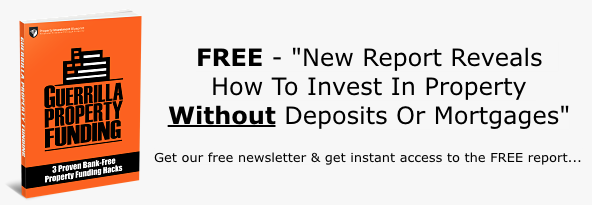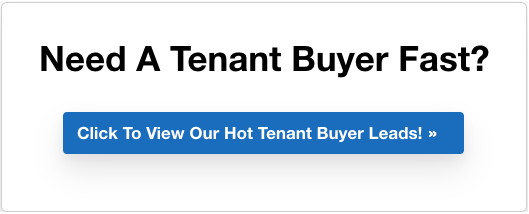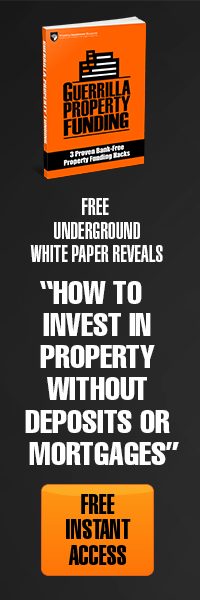
Lease Option Investing: Earn Money in 3 Ways
You might have already read how I used lease option investing to change one of the lemons in my portfolio into a super-cashflowing star of a property.
Anyone can do this with lease options... and loads more.
On this page I'll explain what lease options are and then point you to the resources you need to become an expert in lease options, including lease options training.
Why is lease option investing so awesome?
You might be asking yourself what all the fuss is about lease options. Well there are a few reasons why investors have been getting hot under the collar about them...
Benefits of buying on a lease option:
- There is no need to get a mortgage. You simply "recycle" the seller's mortgage. This speeds the whole process up and gets round the problem of lending being refused or delayed.
- No deposit is required. It really is possible to buy a house for a pound!
- Deals cannot be scuppered by a surveyor down-valuing a property.
- You can give a seller a much better price for their property than with the traditional "below market value" purchase model... and still make good money!
- You can buy negative or little equity properties and still profit (big time).

Benefits of selling on a lease option:
- You will normally get an upfront "option fee" from your incoming buyer. This can range from a couple of thousand to tens of thousands of pounds.
 FREE Download -- Heads of Terms
FREE Download -- Heads of Terms
Once you have agreed the terms of your lease option deal with your seller, you need to complete and sign a Heads of Terms agreement. This then gets passed to the solicitors who use it to complete the legals of the transaction.
You can register to download the heads of terms form that we use in our business here.
What is a lease option?
OK so you know the benefits of lease option investing, but what exactly is a lease option?
The option part -- also known as a property option -- is a legal document. It gives the bearer the right -- but not the obligation -- to buy a property at a certain price, within a certain time frame.
The lease part refers to a rental agreement. If you combine the two then you are giving someone the option to buy a property at a certain price within a certain time frame and allowing them to rent the property in the meantime. Hence the popular name "rent to buy" or "rent to own".
In order for an option to be legally binding, an option fee must be paid to the seller by the person taking the option. The fee is arbitrary but when dealing with a motivated seller, often the minimum amount -- one pound -- is paid. This is why you often hear people talk about "buying" a house for a pound. They are of course not technically buying the house, just buying the right to buy it!
Lease options are extremely flexible and you can use them in a number of different, creative ways. Here are a few examples of how they can be used:
- Sell a property you already own using a lease option.
- Take an option on a property and rent it out to a normal tenant.
- Take an option on a property and then sell it on using a lease option -- also known as a "sandwich option".
- Take an option on a run down property, do it up and sell it on the open market.
- Buy a property on an instalment contract and sell it on an option.
This is really only the tip of the iceberg, the possibilities are really only limited by your imagination.
Where to find option deals?
There are two main ways to find option deals:
- Get them to come to you -- use marketing and referral strategies to get motivated sellers to contact you or...
- Go and find them -- you can proactively source deals from estate and letting agents. There is a certain skill involved in this as, of course, in general they don't know what a lease option is!
Lease Option Investing - Summary
So we've seen how lease option investing can allow you to earn money in three ways:
- Upfront from your buyer's down-payment (option fee)
- Monthly from the enhanced cashflow that creates high income investment property
- At the back end when your tenant buyer cashes you out.
<< Back to Creative Property Investing from Lease Option Investing
<< Back to Property Investment Blueprint from Lease Option Investing




